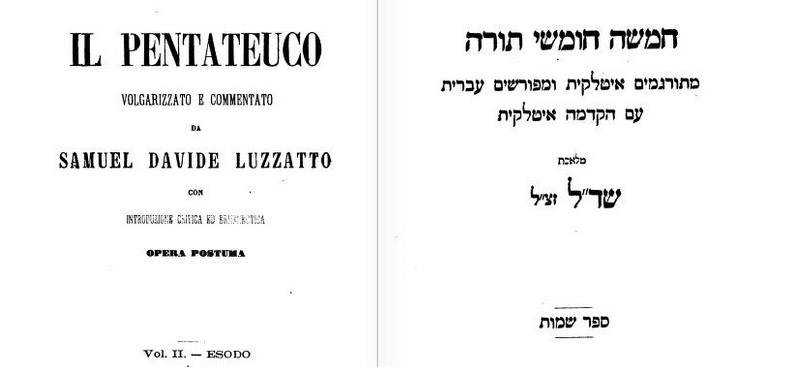Shadal on Exodus: Samuel David Luzzatto’s Interpretation of the Book of Shemot
Daniel A. Klein, a senior attorney editor at Thomson Reuters, is a graduate of Yeshiva University and New York University School of Law. His translation of Samuel David Luzzatto’s interpretation of Genesis was published in 1998. His articles on Shadal’s writings and aspects of Jewish law — some of them translations from Italian, others the fruit of his own research — have appeared in Hakirah, the Jewish Bible Quarterly, and the website of the Jewish Community of Rome. He and his wife live in Rochester, New York, where he has taught Judaic studies at elementary, high school, and adult levels.
Samuel David Luzzatto (1800-1865), known by his Hebrew acronym Shadal, was the leading Italian Jewish scholar of the 19th century. A linguist, educator, and religious thinker, he devoted his talents above all to the interpretation of the Bible. As a master of Hebrew grammar and usage, he focused on the plain meaning of the text. Although he was a devout believer in the divinity, unity, and antiquity of the Torah, Shadal approached the text in a remarkably free spirit of inquiry, drawing upon a wide variety of sources, ancient and contemporary, Jewish and non-Jewish. As a result, his interpretations may strike even the modern reader as fresh and novel.
Among the highlights of Shadal’s Exodus (Shemot) commentary are his view of the Ten Plagues as nature-based phenomena that nevertheless contained supranatural qualities, his discerning literary analysis of the Song of the Sea, and his daring willingness – despite his acceptance of Rabbinic halakha in practice – to look behind the Rabbis’ interpretation of the book’s legal
sections and examine their literal meanings.
Shadal’s treatment of Exodus, as well as the other books of the Torah, consisted of his Italian translation of the text and his Hebrew-language commentary. Here, for the first time, is an all-English version of both the text translation and the unabridged commentary, the first complete edition of Shadal’s Exodus since its original publication in 1872. The translator-editor has supplied explanatory notes and a list identifying the sources cited.









